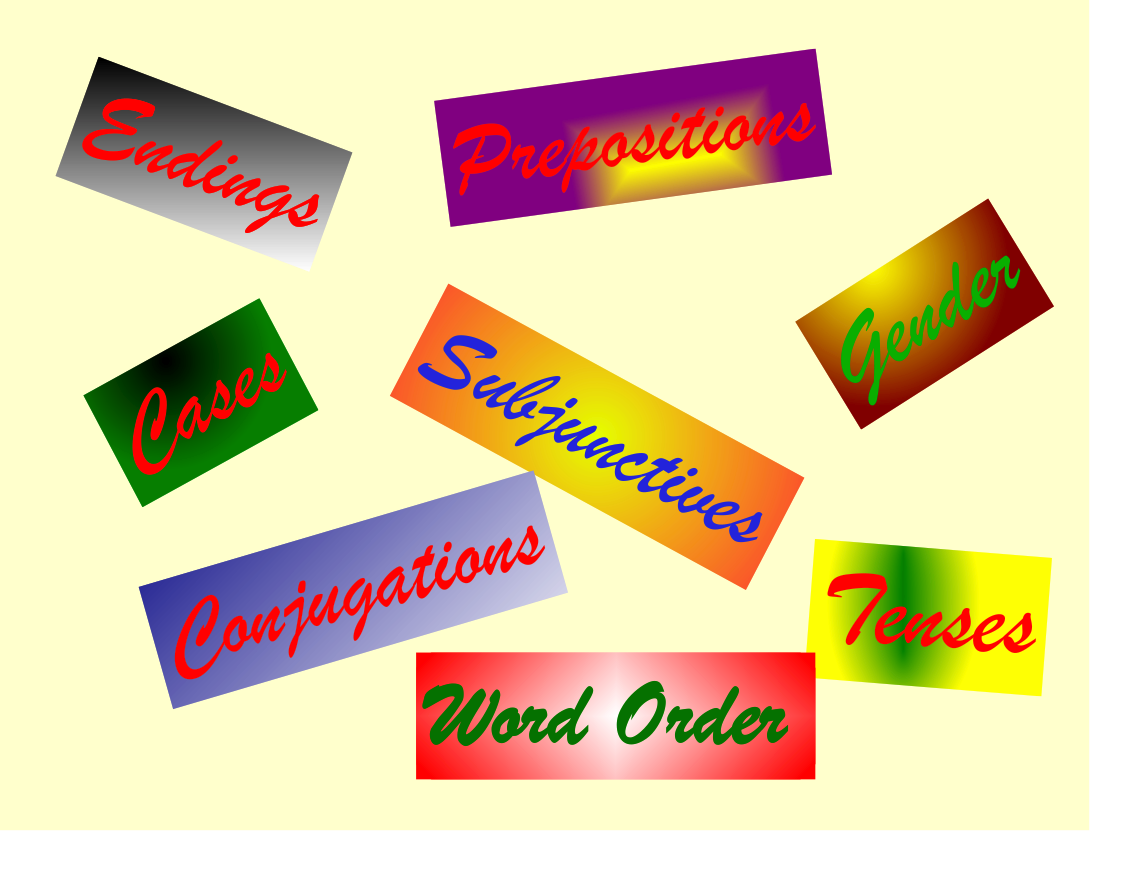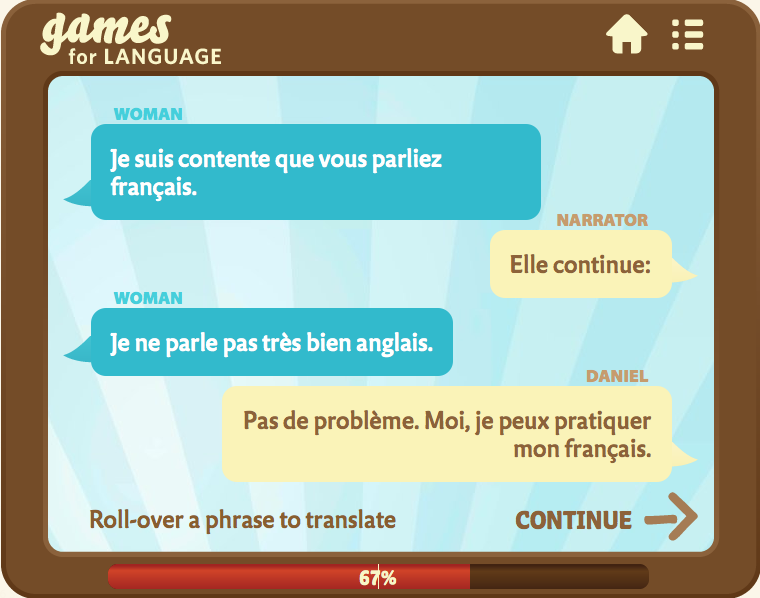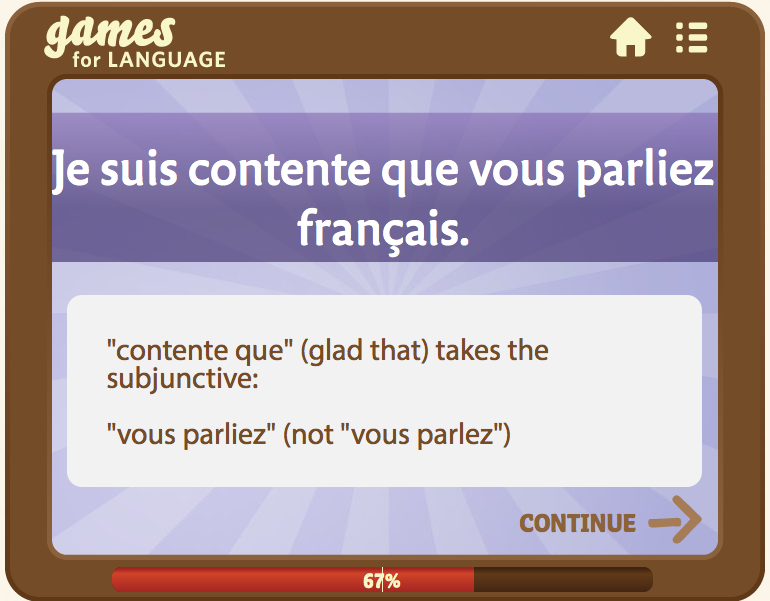Learning Grammar in Context
 A recent blog post "Learning Grammar with WordDive” reminded me that indeed there are many ways for adults to learn a foreign language.
A recent blog post "Learning Grammar with WordDive” reminded me that indeed there are many ways for adults to learn a foreign language.
The author notes: “WordDive is primarily about 'diving' into language through its vocabulary” and “When studying with WordDive, you are exposed to grammar structures integrally in the course of the learning process.”
We agree that adults can learn grammar structures “integrally,” somewhat similar to the way children learn them "through numerous repetitions and imitations.”
Games and “The Story”
Our approach at GamesforLanguage is different: We teach vocabulary and grammar structures with short games and “The Story” - a sequential and connected series of dialogs and short narratives that tell of a young man traveling in European countries.
While the various games help the learner to practice all four skills (listening, reading, writing, and speaking), the dialogues and narratives introduce and repeat grammatical structures, which he or she will recognize and/or, at times, be alerted to.
For example, already in the second Scene (lesson) of our French 1 course, we bring in the subjunctive, with the sentence “Je suis contente que vous parliez...” in our dialogue. We then briefly explain it in our“Deal no Deal” game.
Twenty Scenes later, the expression “je suis contente" is used again, but with the subjunctive of another verb. Will we teach all subjunctive forms of these particular verbs? No, but the learner is alerted to the context in which such forms are used and will start to recognize new subjunctive forms as they come up.
Context Learning
Learning the vocabulary, i.e. the foreign labels of objects, actions, feelings, etc. (see also our post: Language Learning with Pictures and/or Words) is clearly important and necessary.
Romance and Germanic languages have many similarities to English, which help English speakers to remember words and phrases, even if certain grammatical constructions are different. For example, in our story our traveler is asked : “Do you also need something?” and he answers: “I need a travel guide.”
In Spanish one would say: “¿Necesitas también algo?” and “Necesito una guía de viajes.”
And in Italian: “Hai bisogno di qualcosa anche tu?” and “Ho bisogno di una guida turistica.”
Rather than drilling the conjugations for “necesitar” and “avere bisogno,” the learner picks up the second and then the first person singular as part of the question and answer.
And he or she remembers the meaning of “you need” and “I need,” because it is connected to the “travel guide” of the story, with “guía”/ “guida” (guide), “viajes” (voyage), and “turistica” (tourist) being closely related to their English meanings.
Based on our own experience of learning several foreign languages as adults, we know that we can best retain and apply words and phrases, when they relate to objects, actions, feelings, etc. that we encounter in our own life. (That's why we chose a travel story.)
And while our approach is somewhat different from WordDive's, we agree that the discovery of grammatical structures during the learning process is rewarding and more effective than drilling conjugations, tenses, etc.
For some learners, more detailed explanations are necessary, for others explanations are just confirmations of their own discoveries. The extensive offering of free or inexpensive apps and online courses allows learners to choose and combine different approaches that fit their needs and learning styles.
